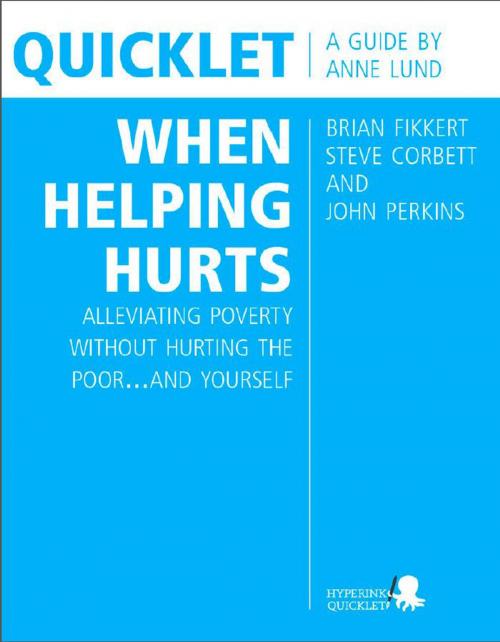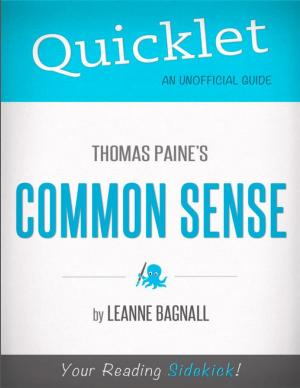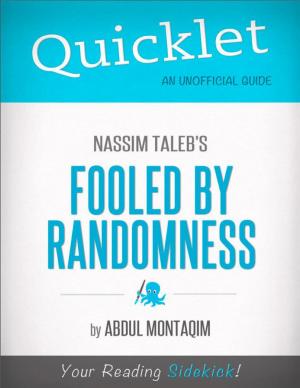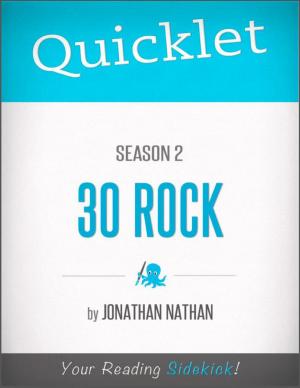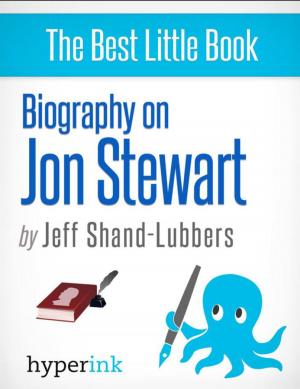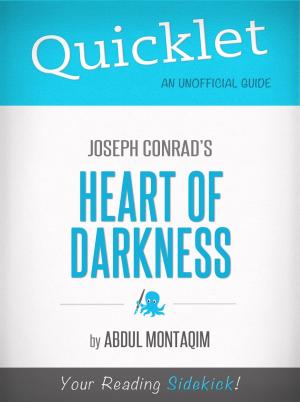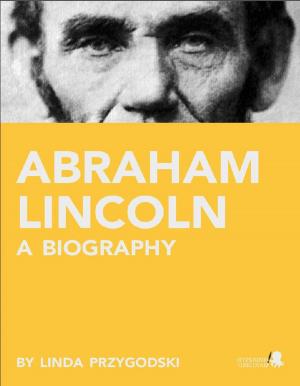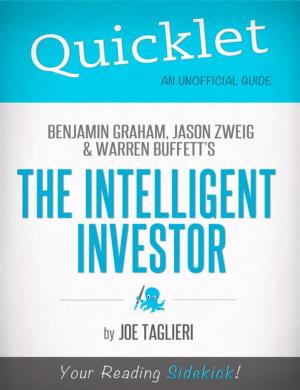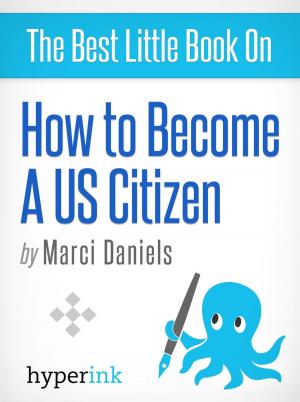Quicklet on Brian Fikkert, Steve Corbett and John Perkins's When Helping Hurts: Alleviating Poverty Without Hurting the Poor...and Yourself
Nonfiction, Reference & Language, Study Aids, Book Notes, Art & Architecture, General Art| Author: | Anne Lund | ISBN: | 9781614646716 |
| Publisher: | Hyperink | Publication: | July 30, 2012 |
| Imprint: | Hyperink | Language: | English |
| Author: | Anne Lund |
| ISBN: | 9781614646716 |
| Publisher: | Hyperink |
| Publication: | July 30, 2012 |
| Imprint: | Hyperink |
| Language: | English |
ABOUT THE BOOK
As we root around in our pockets or purses for change and crumpled dollars to buy a pack of gum, a paper, or cup of coffee, it is hard to fathom that 3-billion of the world’s population lives on less than $2 per day. In the US poverty has also increased dramatically with the economic downturn with 1 in 7 Americans now on food stamps, and nearly half live from paycheck to paycheck, one financial disaster away from insolvency.
There is a growing rift between the comfortable and the struggling, and extreme poverty in the US is increasing. And there is no question that many are trying to address this issue. Cornel West and Tavis Smiley have recently finished a national poverty tour, the Occupy Wall Street movement has called attention to income disparity and the struggling, the UN is working on it’s End Poverty 2015 initiative, and countless think tanks and organizations are concentrating on the issue with varying degrees of success.
EXCERPT FROM THE BOOK
Soon, however, he heard the sound of voices raised in a familiar hymn and he was drawn into a humble open-air church. While there he listened to the parishioners pray directly to God for immediate needs, cures for ailments, help with hunger and shelter. He realized that these people in their prayers had a deeper relationship with God than he did with all of his advantages.
The poor are also often caught in situations beyond their control. War, famine, hopeless economic conditions, and political oppression can trap them in situations. The authors believe these feelings of hopelessness cannot be overcome without a strong spiritual base.
Chapter 3: Are We There Yet?
The chapter begins with the case of Alisa Collins, a single mother with 5 children living in a Chicago housing project. Alis felt trapped, she wanted a job but she was a high school drop out. When she did find a job her benefits were cut and she had to worry about the expenses of childcare. She felt trapped and hopeless.
How can a Church help someone like Alisa?
Fikkert and Cobertt write that in order help a person like Alisa first fix relationships with God:
Poverty is rooted in broken relationships, so the solution to poverty is rooted in the power of Jesus’ death and resurrection to put all things into right relationship again...
Buy the book to continue reading!
Follow @hyperink on Twitter!
Visit us at www.facebook.com/hyperink!
Go to www.hyperink.com to join our newsletter and get awesome freebies!
CHAPTER OUTLINE
Brian Fikkert, Steve Corbett and John Perkins's When Helping Hurts: Alleviating Poverty Without Hurting the Poor. . .and Yourself
+ About the Book
+ About the Authors
+ Overview
+ Appendix
+ ...and much more
ABOUT THE BOOK
As we root around in our pockets or purses for change and crumpled dollars to buy a pack of gum, a paper, or cup of coffee, it is hard to fathom that 3-billion of the world’s population lives on less than $2 per day. In the US poverty has also increased dramatically with the economic downturn with 1 in 7 Americans now on food stamps, and nearly half live from paycheck to paycheck, one financial disaster away from insolvency.
There is a growing rift between the comfortable and the struggling, and extreme poverty in the US is increasing. And there is no question that many are trying to address this issue. Cornel West and Tavis Smiley have recently finished a national poverty tour, the Occupy Wall Street movement has called attention to income disparity and the struggling, the UN is working on it’s End Poverty 2015 initiative, and countless think tanks and organizations are concentrating on the issue with varying degrees of success.
EXCERPT FROM THE BOOK
Soon, however, he heard the sound of voices raised in a familiar hymn and he was drawn into a humble open-air church. While there he listened to the parishioners pray directly to God for immediate needs, cures for ailments, help with hunger and shelter. He realized that these people in their prayers had a deeper relationship with God than he did with all of his advantages.
The poor are also often caught in situations beyond their control. War, famine, hopeless economic conditions, and political oppression can trap them in situations. The authors believe these feelings of hopelessness cannot be overcome without a strong spiritual base.
Chapter 3: Are We There Yet?
The chapter begins with the case of Alisa Collins, a single mother with 5 children living in a Chicago housing project. Alis felt trapped, she wanted a job but she was a high school drop out. When she did find a job her benefits were cut and she had to worry about the expenses of childcare. She felt trapped and hopeless.
How can a Church help someone like Alisa?
Fikkert and Cobertt write that in order help a person like Alisa first fix relationships with God:
Poverty is rooted in broken relationships, so the solution to poverty is rooted in the power of Jesus’ death and resurrection to put all things into right relationship again...
Buy the book to continue reading!
Follow @hyperink on Twitter!
Visit us at www.facebook.com/hyperink!
Go to www.hyperink.com to join our newsletter and get awesome freebies!
CHAPTER OUTLINE
Brian Fikkert, Steve Corbett and John Perkins's When Helping Hurts: Alleviating Poverty Without Hurting the Poor. . .and Yourself
+ About the Book
+ About the Authors
+ Overview
+ Appendix
+ ...and much more
